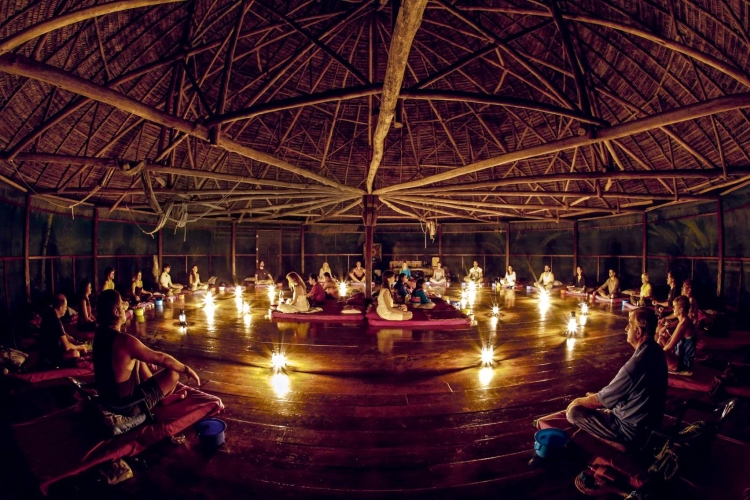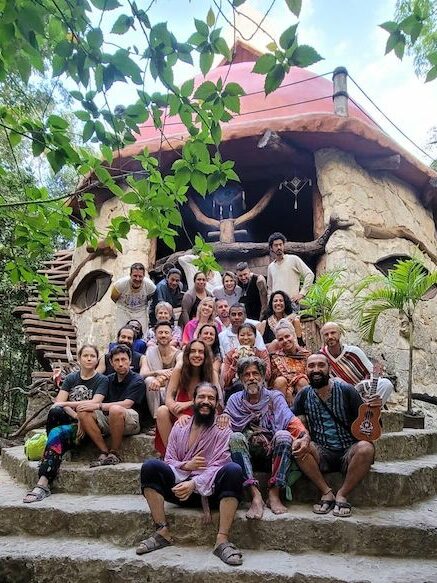
Different Types of Psychedelic Retreats
Thinking of visiting a psychedelic retreat but not sure what your options may be? Turns out there are many different types of psychedelic retreats. Retreats may differ by:
- The plant medicine used
- The staff’s credentials and level of training
- The approach to integration
- The location and setting
- The legal status of the particular psychedelic being used in that retreat
- The duration of your stay
- The group size (1:1 sessions to 30+ people)
- The degree of customization
- The cost
Here, we’ll go over the main differences between retreats to help you choose the best one for you.
Table of Contents
What Types of Psychedelics Are Used in Retreats?
On frshminds.com, you can review retreats using 6 different kinds of psychedelic compounds. Let’s take a look at what each of them is most commonly used for and some pros and cons.
1. Psilocybin (Magic Mushrooms, Truffles, etc.)
So far, research has shown psilocybin is very effective for cancer-related depression and anxiety and treatment-resistant depression.
It’s also moderately effective for treating alcohol and tobacco addiction.
Plus, preliminary research suggests it could help people suffering from:
- Obsessive-compulsive disorder (OCD)
- Cluster headaches
- Migraines
- Demoralization with an AIDS diagnosis
- Eating disorders
In addition, psilocybin is gentle on the body, safe for most people, and non-addictive.
2. Ayahuasca
According to a 2016 research study, Ayahuasca is effective for treating PTSD (especially combat-related PTSD) and different addictions. In 2019, another study reinforced that it’s an effective addiction treatment, namely for cocaine, opioid, and alcohol dependence, and added that it can help those suffering from depression and anxiety. And yet further studies have shown that Ayahuasca is largely safe.
3. DMT
Research on DMT as a therapeutic drug is very limited. Small Pharma conducted the first-ever clinical trial to treat moderate to severe depression with DMT. The results were very promising and adverse reactions were rare and mild. Observational studies and surveys suggest DMT can lead to quick and sustained decreases in symptoms of depression, anxiety, and stress.
4. Ibogaine
Ibogaine comes with serious clinical risks in rare cases. That’s probably why most studies have focused on its potential negative effects instead of its benefits.
Still, there’s a lot of anecdotal evidence showing that it can eliminate withdrawal symptoms and cravings associated with various drugs. Many people claim it’s most effective against opioid addiction — and research has confirmed it. Ibogaine features centrally in the film Reborn. Produced by industry noteworthy Mike Zapolin, it tells the story of Lamar Odom, whose rise as a champion in the NBA was followed by his precipitous fall in to substance abuse. Odom credits ibogaine treatments with dissolving the addictive impulses he once felt, leading him to sobriety and recovery.
5. Bufo Alvarious (5-MeO-DMT)
Bufo Alvarious is a potent secretion that comes from the Colorado River Toad. It contains a substance called 5-MeO-DMT, which is four to five times as potent as DMT!
There’s evidence that this compound can increase life satisfaction, convergent thinking, and mindfulness, and reduce depression, anxiety, and stress rates. Another study suggested it could also be useful for treating:
- Eating disorders
- Body dysmorphic disorder
- Persistent depressive disorder
- PTSD; this was reaffirmed in a preliminary study published in 2020 that focused on combat veterans
- OCD
- Substance abuse
6. Mescaline (San Pedro, Peyote, etc.)
Mescaline is a psychedelic compound deriving from several cacti, including peyote and San Pedro. According to the UC Berkeley Center for the Science of Psychedelics, it could be an effective treatment for drug and alcohol addiction, anxiety, and depression.
What Qualifications Do the People Working in Psychedelic Retreats Have?
The qualifications that people working in psychedelic retreats have may depend on the retreat. There aren’t really any regulations around this, and most retreats are headed by an expert with deep hands-on experience.
One thing they all have in common is that they’re very familiar with the plant medicine being used and its effects.
Plus, most practitioners are highly empathetic people that truly want to help others. A majority have also experienced the healing powers of psychedelics first-hand.
When it comes to actual training:
- Some are shamans, armed with indigenous knowledge passed down through multiple generations and lots of hands-on experience.
- Some are trained medical, psychological, or psychiatric professionals who later specialized in psychedelic therapy.
- And others took courses or have certifications in tripsitting, psychedelic guiding, or psychedelic-assisted therapy.
The Legality of Psychedelic Retreats
The legal status of psychedelic retreats varies from country to country. Even within the same country, it varies, depending on the psychedelic substance being used.
Generally, there are four categories of legality for plant medicines:
- Legal
- Illegal
- Decriminalized — basically ignored, depending on the amount
- Not scheduled — no laws have been written or approved regarding that substance
Integration at Psychedelic Retreats
Any retreat that’s serious about helping you heal and improving your well-being has a strong focus on integration practices. While most retreats say they have this focus, the reality can vary greatly.
When it comes to post-retreat integration, some have resources and guidelines for you to DIY, others offer online sessions (either 1:1 or in groups), and others have dedicated therapists and a more structured approach.
Also, some retreats only offer integration sessions during your stay and then encourage you to seek professional help once the retreat is over — that’s actually one of the best ways to strengthen and prolong the beneficial effects of the retreat, according to research.
Different Psychedelic Retreat Settings

And, then, there’s the “where.”
There are all sorts of different psychedelic retreat settings — in the beach, jungle, or city (hiding in plain sight!); luxurious or modest accommodation… take your pick!
Is the maloca consistent with indigenous tradition?
How nice (and close) are the bathrooms?
Every retreat has a unique story and they range from five-star resorts to shared rooms in someone’s house.
For example:
At Holos Retreat in Costa Rica, you’ll stay in their eco-luxe accommodations surrounded by waterfalls, lush jungle, and mountains.
At Portal Xibalba in Mexico, you’ll stay in what can best be described as an Alice in Wonderland-inspired treehouse.
And at Soltara in Peru, you will sometimes feel lost amidst the forest canopy.
To decide on the perfect setting for you, you need to consider both your preferences and budget. Sessions with more guests may be cheaper because the retreat can spread the costs of hiring a cook, cleaning crew, practitioners, therapists, etc. across more retreat-goers. The same goes for the infrastructure — cramming a dozen guests into a few rooms or modest jungle bungalows is much cheaper than having a whole villa for a couple of people.
So, What’s the Best Type of Psychedelic Retreat for You?
There are so many different types of psychedelic retreats; it might be overwhelming for beginners to decide which one to go for.
But there are a few factors you can use to guide your choice.
You can pick the plant medicine that better suits your needs — the most common ones include psilocybin, Ayahuasca, and ibogaine.
You can also narrow down your options by considering the qualifications and experience of the staff, the legality of psychedelics where the retreat operates, their approach to integration, and the setting.
Have you figured out which type of retreat is the best for you? Let us know in the comments.
Related Articles
Learn more about Psilocybin on Frshminds:
- Considering a retreat? Check out Frshminds’ Ultimate Psilocybin Retreat Center Guide.
- What Kind of a Drug is Psilocybin? What Will It Do To Me?
- How Long Does Psilocybin Stay in Your System?
- Don’t Miss the Best Psilocybin Retreats in Amsterdam
- How To Properly Store Magic Mushrooms
- Why Are There Psilocybin Retreats In Mexico?
- Want To Go To A Magic Mushroom Retreat in Jamaica?
- 3 Top-Rated Psilocybin Retreats in Costa Rica
- The Best Psilocybin Retreats: What To Look For
- Psilocybin Retreats in the Netherlands

Comments
i am a very loving fan of psychedelics and have been into magic mushrooms since it became a very integral part of my husbands life who is a veteran. i must say psychedelics has really helped my husband a lot and also has enabled me see the world of healing from another point of view.